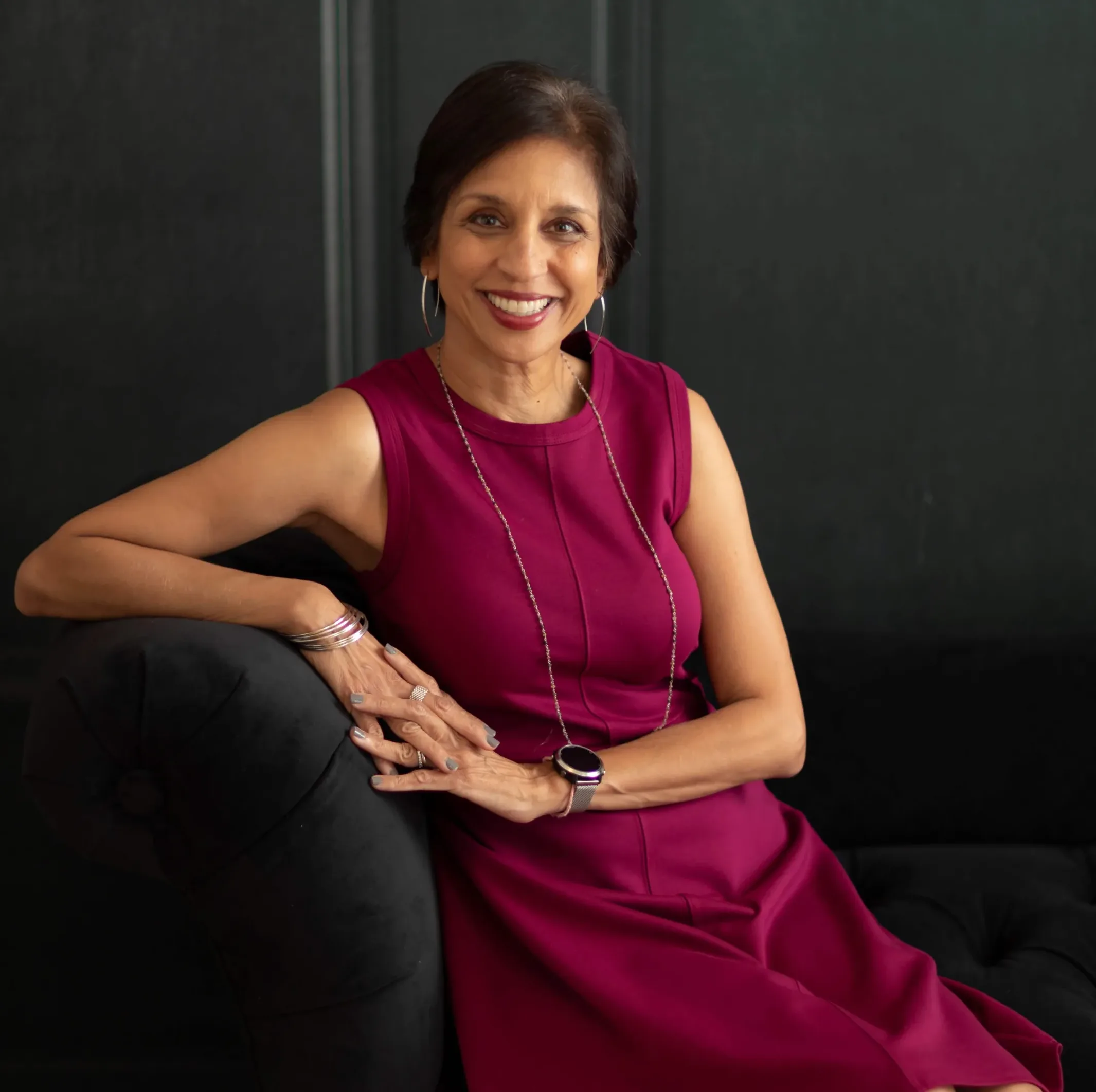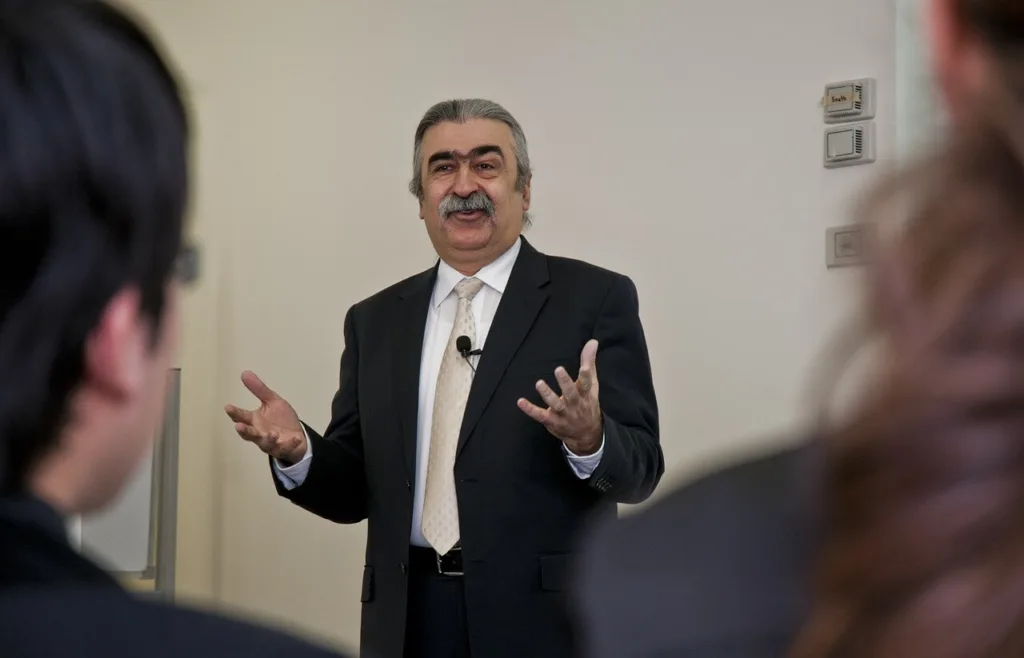Not all doctoral degrees are earned in your 30s and 40s; I am a doctoral student in my 50s, having transitioned from a stay-at-home mom to a podcaster to a TEDx speaker, and my biggest cheerleaders are my adult children.
This is my story.
‘Lead Parent’
For most of my adult life, I dedicated myself to raising four children, nurturing them to become compassionate and empathetic individuals while motivating them to pursue their academic and professional goals to the fullest. Each day was a whirlwind of running them to school, extracurriculars, ensuring they were well-fed, and encouraging them to become actively involved in their communities. They were also filled with words of encouragement, a sympathetic ear, and, often, exhaustion. The goal, however, was never lost: To raise independent, critical thinkers who would make an impact in their chosen professional fields. As my husband, a business owner, divided his time between the company and our family, I took on the role of the Lead Parent, embodying the essential qualities and characteristics our children needed.
My primary role was to raise our children. I advocated at and for their schools and district on numerous education policies, which eventually led to several volunteer opportunities working at the city government and Chamber of Commerce. This kept me intellectually stimulated and provided the flexibility needed for my family.
Exploring New Paths: Podcasting
When our children gallivanted off to college, leaving us empty-nesters, I spent several months reflecting on my accomplishments with the children and myself, contemplating what my new season in life would bring. What does a 50-year-old woman do when she gives up her teaching career to be a stay-at-home mom for more than twenty years? Can I have an identity independent of my children? What would that look like? Who am I, and what is my skillset? Is it finally my time to be selfish and pursue my dreams?
I decided to start small, knowing that failure was possible, while dusting off the professional cobwebs that had accumulated over the years. Podcasting seemed like a natural fit due to its flexible schedule. It allowed me to visit my children when possible while also finding a platform for advocating in the field of education, which required refining to pursue larger projects.
My children embraced this new venture and even made guest appearances on a few episodes. They supported this technologically challenged mother through tasks such as editing, brainstorming ideas, inviting guests, and creating the intro/outro music for the episodes. Their assistance and encouragement boosted my confidence and opened up new possibilities for life after 50.
Each text or phone call with them entailed a conversation where they asked, “What’s next, Mom?” Often, I didn’t have a clear answer, but I always pondered, “What IS next?” Slowly, I continued to challenge myself. First, by speaking on parent engagement and podcasting, leveraging the convenience of virtual summits and conferences.
A Leap of Faith
And then, something incredible happened – a TEDx Talk. What?! How could I be deserving of standing on that red circle, delivering an idea worth spreading? The feedback I received from the talk was overwhelming, and in that moment, I made the decision to push even further – to pursue a doctorate at the age of 54. Why not? It felt like the logical next step in my journey, transitioning from a stay-at-home mom to a podcaster to a TEDx speaker.
I asked my family for their thoughts on this daring idea. Each of my children responded with variations of “Go for it!”, “It’s your time to shine!”, and “I’m so proud of you for doing this!”. I appreciated their support, but that didn’t guarantee my ability to embark on this journey. After all, I hadn’t been a student in a classroom for nearly 30 years. Technology has evolved significantly since then (I used word processors and dot matrix printers in college), and teaching methodologies have changed as well. The integration of technology in learning was, and still is, overwhelming. Additionally, being the oldest in my classes with classmates who are 15-20 years younger posed its own challenges. However, each of them has shown patience and kindness in helping me adapt to this new way of learning. Learning at this stage of my life feels refreshing, exciting, and liberating, allowing me to pursue personal goals that I’ve harboured for many years.
My Biggest Cheerleaders
At the time of writing this publication, I have completed my second semester of coursework, with only four more to go before beginning my dissertation. My children are unabashedly supportive and proud of my journey. They willingly proofread my papers and provide feedback on my presentation slides. They frequently inquire about my coursework and mental state and never fail to share words of encouragement, often echoing the ones I told them during their academic careers. It’s come full circle.
As I reflect on the privilege of raising my children, being in their lives, cheering them on, and advocating on their behalf, I am grateful for the dream I had for them – to become compassionate and empathetic citizens of the world. They indeed humbly display these characteristics not only towards others, but also towards their old mother as she pursues her doctorate. There is no greater joy than hearing your children say, “Mom, I’m so proud of you”. For that, I’m glad I began this journey at this age and at this particular moment in time.
My children are my greatest supporters and cheerleaders. They are as proud of me as I am of them. Yes, I’m a lucky gal.




